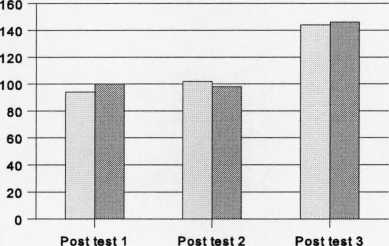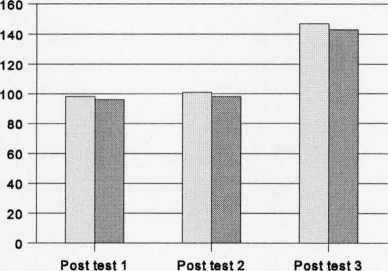Does the children ,s prior knowledge of the lexical items influence performance on the
contrast task ?
Figure 7.29 shows that the children provided the same number of contrasts for both the
partially represented and the unknown words. Statistical analysis revealed no significant
differences.
Figure 7.29 Total provision of contrasts by children’s prior knowledge of the lexical
items across testing

] Unknown words
∏ Partially represented words
Is the provision of contrasts influenced by the semantic domain of the lexical items?
Figure 7.30 shows that the provision of appropriate contrasts did not differ by the semantic
domain. No significant differences were found.
Figure 7.30 Total number of contrasts by semantic domain across testing

I I Artifacts El Animals
254
More intriguing information
1. Bidding for Envy-Freeness: A Procedural Approach to n-Player Fair Division Problems2. The name is absent
3. The geography of collaborative knowledge production: entropy techniques and results for the European Union
4. Return Predictability and Stock Market Crashes in a Simple Rational Expectations Model
5. Pricing American-style Derivatives under the Heston Model Dynamics: A Fast Fourier Transformation in the Geske–Johnson Scheme
6. Natural hazard mitigation in Southern California
7. Foreign direct investment in the Indian telecommunications sector
8. Spatial agglomeration and business groups: new evidence from Italian industrial districts
9. The name is absent
10. The name is absent